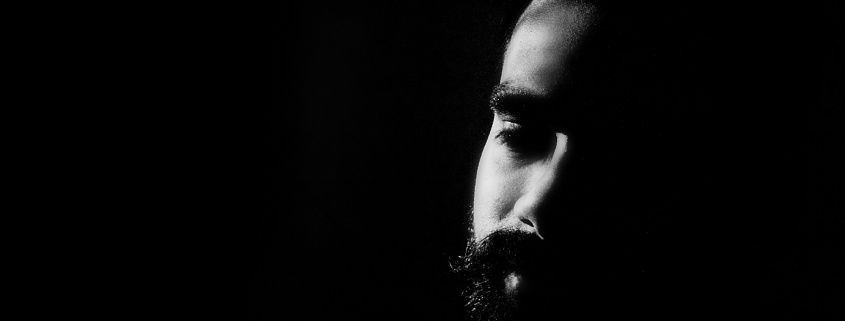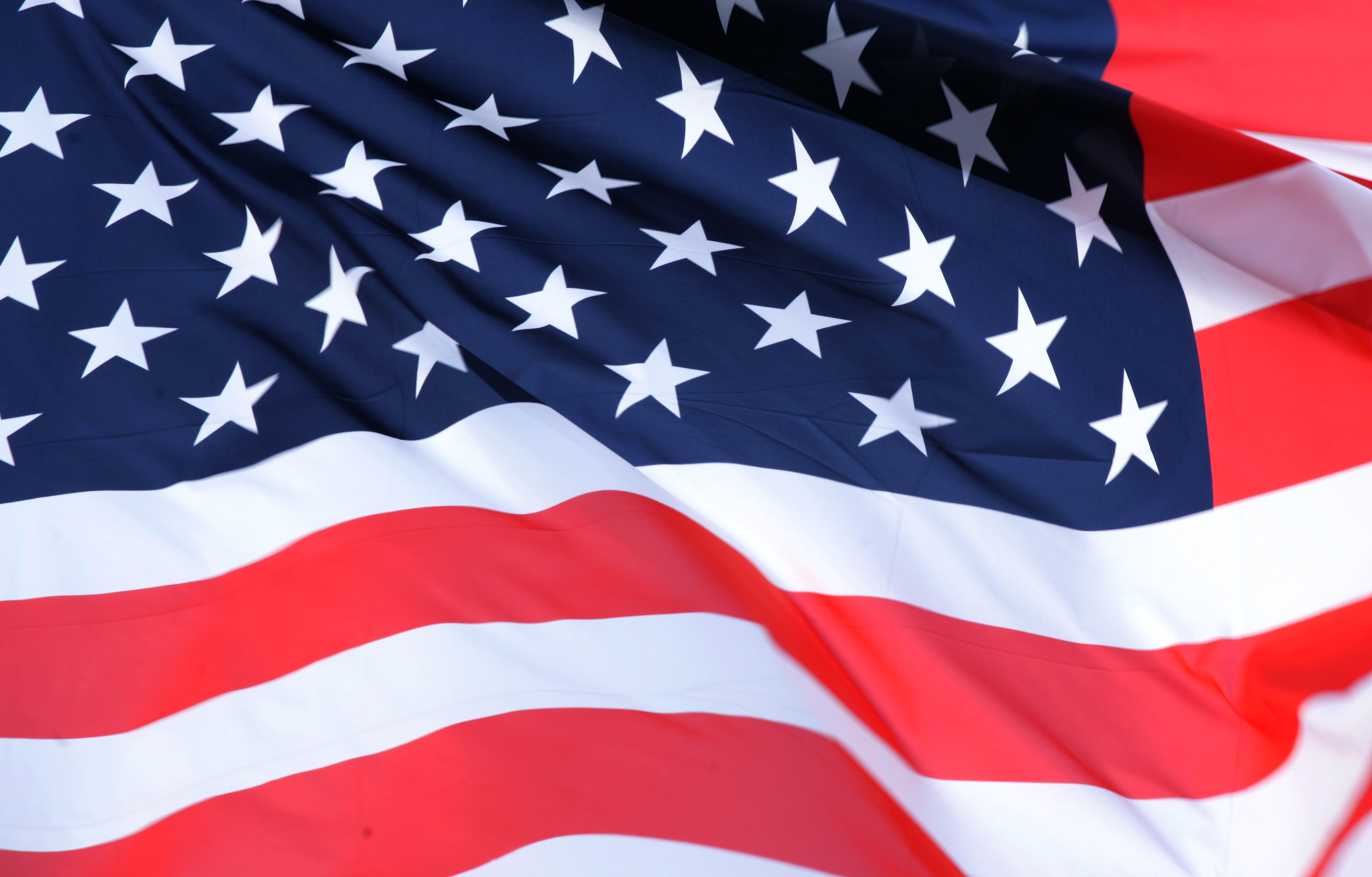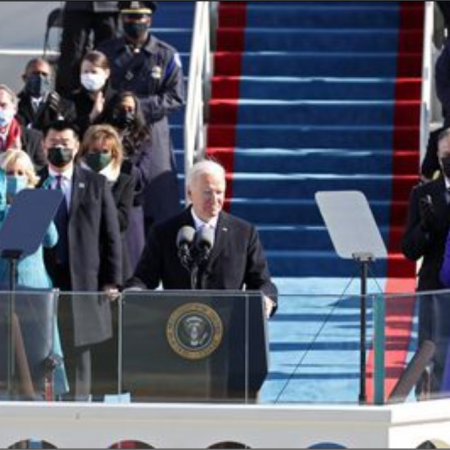The Woes of the Bearded Muslim Man
by Tania Dawood
My older brother has been keeping a straight face for several years as intercommunity frustrations targeted his beard and his commitment to his faith.
Even before 9/11 Muslims were already on edge about appearances. I imagine this was due to at least two factors: the possibility of residual concerns from parts of “the Muslim World” where the presence of a beard and one that was especially long was associated with influence from religious groups.
Of course, there was always the possibility that a man just wanted to have a long beard because of dedication to his faith, PERIOD- but the association was stuck and the concerns were not completely unfounded. The second factor could be that “brown people” were a newer wave of immigrants which were gradually increasing their presence.
International professional graduates, foreign workers, business owners, and people who simply wanted a different life were building one here in the U.S.- how were they to make room for themselves in society though? One can hardly blame them for wanting to assimilate when perhaps there was little room to integrate.
Their main concern was survival in itself.
Who wants to see a light brown boy with a beard contrast this effort, and fresh after 9/11?
What sense of religiosity was he carrying that he could show his faith in ways elders would not?
I wondered if my brother was an isolated incident when it came to experiencing the feeling of elders looking down on a younger generation for embracing his beard during a paramount era of American-Muslim identity crisis.
Below is what I have heard from the testimonies of nine Muslim brothers of Afghan, Ethiopian, Syrian, Egyptian and Pakistani descent.
Most respondents spent a significant portion of their life growing up on the west coast.
Motivation to Grow a Beard
In the aggregate of the testimonies, almost all responses combine the aspect of Sunnah that is associated with having a beard and the aesthetic benefits. Some respondents, namely Pakistanis, were straightforward about keeping the beard simply because they wanted to.
“I had a beard cuz I thought it looked dope.”
To them, the beard was about style and cultural trends but not something mandatory in the faith. One of them even provided a few arguments against keeping the beard for religious purposes, which will be discussed at the end.
For some, Sunnah was the priority and it just so happened that the presence of the beard gave them a certain confidence in their looks and something beyond their appearances.
“Becoming prouder of my religion means to want to display it, even if it’s in a way that only I understand.”
Some even believe that the Sunnah of the beard is there to distinguish the Muslim from the general public. A feeling of “a unity that only those involved can sense it at times” is encouraging. The common factor of the beard can make one feel connected to his brothers and to the faith itself, even when beards are trending amongst the general public. The differentiating factor would be the length of the beard, but that is where issues of aesthetics and compromise arise.
For at least the past decade I have not seen a long beard on my brother.
Intercommunity Reaction
Since my brother’s experience was that there were members of his own community (Pakistani Muslims) who responded negatively to his beard, I had to ask about the intercommunity reactions from others. At first, it seemed like all their experiences were far more positive than my brother’s.
Almost all those who testified mentioned that they understand the worry of people in their community; their concern regards the negative stereotype associated with the beard. In spite of that, the respondents are happy to keep it.
“I’ve noticed that we’re reclaiming our beards in a more positive way…surely affirming and standing by our identities.”
Negative reactions from a person’s own community may be limited to jokes from friends about becoming a sheikh or about how the brother’s beard does not connect. Other negative comments could be more serious though, and those come from one’s own family.
Both of the Afghan respondents mentioned that people in their community certainly recommend keeping the beard trimmed, and one of them detailed that his community is very polite about the suggestion (presumably because it would be tabooed to completely rebuke something associated with Islamic practice).
My brother’s experience was less pleasant. I initially wondered if this contrast was due to the different way Afghanistan and Pakistan have historically operated in conjunction with Islam, but I am not so sure that this is of enough significance. There is too much variation in religiosity and practice of descendants from both nations.
It is worth considering that there were fewer “brown people” and Muslims around when my brother moved to the U.S., so there may have been more pressure to assimilate and that is why elders were harder on him in his youth.
A brother of Egyptian decent mentioned that Egyptians may bring up the Muslim Brotherhood upon noticing someone transition to maintaining a beard. I have heard repeatedly that Egyptians hold their faith as a primary identity. Muslims make up about 90-95% of the population in Egypt.
That is why I found it interesting that beard levels could trigger questions. It makes sense though; changes in appearance will always spark questions and create assumptions. If every Muslim Egyptian, including those abroad, already had a long beard then it would not be as curious.
In short- a nation can be strong about its religious identity but still maintain a society where many Muslim men may not have long beards or any at all. The main intercommunity concerns that almost all respondents mentioned were that hopefully, the brother would not maintain a long beard for both safety and aesthetic purposes.
It is notable that all the respondents are closer to my age than to my brother’s. His “college experience” was not post-9/11, it was during.
General Public Reaction
Overwhelmingly, the respondents have described that there are few issues with the general public when it comes to reactions to the beard. Actually, non-Muslim friends have shown admiration and envy towards the ability of the respondents to grow and maintain their beards. Overall, non-Muslim peers have been positive towards the beard.
Keep in mind that the respondents compromised with trimmed beards, and that may make most of the difference. An Afghan brother who waivers on keeping his beard long shared that when it is long enough to pinch, he gets more stares. He is tan-skinned. We both have a similar approach to getting the general public comfortable with our presence: we speak. Our accents are American- what if they were not?
A Syrian brother with light skin and auburn hair says that he has not experienced anything negative that can come with declaring his faith through the way he looks.
“I’ve realized in the past few years that I don’t have the same dark skin that people often associate with Muslims.”
He is sympathetic to the issue. “It does sadden me to hear that anyone might have a prejudice against another fellow human being…whether it be a Muslim, Sikh or Jew… we should just realize the beauty that comes with those faiths and the people that adhere to them.”
Motivations to Keep and Maintain the Beard
I imagined that motivations to keep a beard would not be different from the motivations of growing one in the first place. Asking this question is what sorted out the pattern of having the beard as Sunnah and then appreciating the aesthetic pleasures it brought for most respondents. In some cases, the process was the other way around.
Responses to this question highlighted something else about the general public: in this day and age, there seems to be less pressure to be cleanly shaven at a job interview or at work.
The beard could actually be helpful in maintaining a look that one respondent called “professional” and “mature.”
He said that he likes having a beard because he wants to be taken seriously as he speaks to adults. Another brother said that he was on the fence about shaving his beard because it had taken him significant time to grow out as much as he had. He was encouraged to shave it by peers so that he would look professional. However, the idea that a guy with stubble or a beard is someone who carelessly rolled out of bed seems to be getting old- what matters is that he looks clean and professional in every other way. However, the same issue with aesthetics arises here: do not keep the beard too long.
On top of the worry that one may look too Muslim to the public and too extreme to other Muslims, there is the issue of looking unprofessional simply because the beard is long. The brother whose community members are very polite about encouraging him to keep it short experiences more frank requests from female family members to trim it. It seems to be a matter of appearances. However, he hopes to keep it long someday.
“In the Sunnah you are not supposed to trim it or cut it, and I believe that, but I do want to cut it so that it looks clean even when its long.”
He further asserted that keeping the beard is a helpful reminder to him.
“There are days where I don’t want to pray, where my Imaan is weak- but having my beard serves as a reminder to me that I am nothing without this faith.”
Having a beard gives him the hope that he can at least take this much of a step to comply with his faith.
Arguments Against Maintaining a Beard for Religiosity:
A brother shared
“I think that by associating beards with Islam you’re completely insulting what it’s supposed to be about. Like you’re saying ‘look at this cosmetic feature it’s so important, and it screams to the world how Muslim I am’.”
I wonder if wearing a beard as a form of pride would be compromising then. Would the pride have to be balanced out by a desire to follow faith?
“If you think god actually gives a [care] about you having a beard…your perception of god contradicts his 99 names which you so heavily believe in,” he added.
Prior to this conversation I thought I had heard it all. I had not.
Another concern that some Muslims have against the beard is that they presume the wielder of the beards thinks that they can appear pious in society by virtue of their facial hair.
Wait, isn’t it the beholder’s fault for assuming piety based on appearance?
The judgment is not completely unfounded though- I have seen consequences play out because people trusted in others for how virtuous they appeared. The issue is that the judgment can trigger anger towards people in general who have a beard for religious purposes, even if they do not intend to hide their sins and vices behind it (the problem is that they might have a responsibility to, so that others do not think it is casual to commit the same mistakes).
Does appearance put more pressure on a person to act a certain way or at a higher standard?
“If you see a brown dude with a long beard and no moustache, it’s a safe assumption he thinks he’s [quite] religious.”
I cannot argue with this, as I cannot read minds and can only assert so much from the actions a person shows in front of me.
The question of “Does he think he’s religious or does he simply want to be religious?” could fall short, because one may associate an attempt to be religious as actually being religious.
What if the bearded dude is wearing a flannel shirt and a fedora?
“… to avoid the cognitive dissonance…it sounds much better to say, ‘I have a beard because I care about my faith’ than to say, ‘I have a beard because I want people to know how Muslim I am’.”
Initially, I could not argue with that idea, but if there are people out there who religiously maintain the beard in a manner that they know society would not digest easily, his point could be weak.
The issue of Muslims keeping socially acceptable (aka short) beards would not apply too heavily because the social acceptability itself makes the beardless associated with piousness. Sure, the point of people looking up to those with long beards could come up again, but there may be people with long beards who actually do not want a higher label. They may just want to practice.
“The idea behind it is ‘Sunnah’…the whole point of Sunnah is that you emulate the life of the prophet…why emulate his life? Because he was a good human being. That does not mean that if the prophet’s eyelashes protruded 2 cm from his eyes you should get eyelash extensions.”
I wonder if Muslim men keep beards simply because the Prophet Muhammad PBUH did or because he reportedly expressed a standard of keeping the beard (Sunnah and Hadith?).
Had he not supposedly expressed a standard, would Muslim men still choose to emulate this aspect?
When it comes to grey areas, people do turn to leadership.
This brother contended that another mode of thought is “all the sheikhs and mullahs are saying I should have a beard, and I’m a follower so I’ll keep a beard’ aka sheep mentality.”
If followers can at least try to rationalize having a beard, which they probably attempt since they’re making a decision on appearances, then it is questionable that they are sheep. They may very well be though, which is fine if they do not mind the label.
I could have asked: what if the beard is about a sense of unity and reminding oneself of their commitment to the faith?
However, if the beard was not thought of as Sunnah in the first place, then it would have no meaning in serving as a reminder.



















2018
2,090 views
views
0
comments